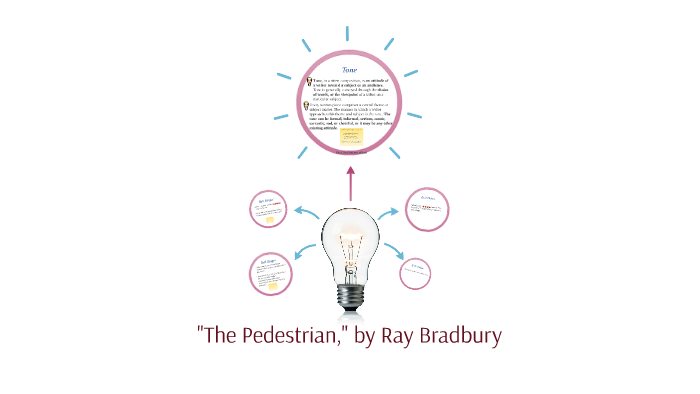

They glanced out at the world that was raining now and raining and raining steadily. They looked at each other and then looked away. "They stood as if someone had driven them, like so many stakes, into the floor. This quote illustrates that we are not isolated rather we live in a cosmopolitan world that connects all of us to one another and the future generations of all species. It is an idea that is often considered but rarely acted upon - for instance the rhetoric of politicians often asks us to think of future generations even if the policy is not mindful of those generations. Even though time travel is not possible, Bradbury is still able to communicate the idea that our actions have repercussions for future generations. Travis' address highlights Bradbury's broader theme of interconnectivity in the short story. The Time Safari has gone to great lengths to ensure that none of their customers disrupt the future by interrupting a natural process in the past. Travis delivers this line to Eckels and the rest of the men in the safari expedition as he tries to explain the necessity of staying on the designated path. "The stamp of your foot, on one mouse, could start an earthquake, the effects of which could shake our Earth and destinies down through Time, to their very foundations." Travis in "A Sound of Thunder," p. The house cooks breakfast, cleans up, sets up for bridge, and reads this poem. Despite that, life in the house continues as if there were still inhabitants. Outside of the house, the neighborhood is in ruins, and no one appears to be living in the house or in the vicinity of it. The poem seems to have predicted exactly what has happened - no one minds that mankind has perished. This poem is read by the house shortly before it begins to die and is eventually destroyed. Would scarcely know that we were gone." "There Will Come Soft Rains," p. Not one would mind, neither bird nor tree,Īnd Spring herself, when she woke at dawn Whistling their whims on a low fence-wire Īnd not one will know of the war, not one "There will come soft rains and the smell of the ground,Īnd swallows circling with their shimmering sound They are equally dependent on the house, and this is the first time they acknowledge that in the story. When George says this to Lydia, it represents the breakdown in inter-family communication - they think their children are insufferable, as well as their inability to interfere as parents and maintain their personal identities. The children have become increasingly adverse to any sort of change in the status of the house or any parenting decision made by George and Lydia. George wants to shut the house off, but Lydia is worried about the children's reaction. They are troubled by the fact that the nursery will no longer change to other settings - it remains on the hot African savannah and the feasting lions. George Hadley says this to his wife over dinner while they wait for their children to return from the fair. They're spoiled and we're spoiled." George Hadley in "The Veldt," p. They come and go when they like they treat us as if we were offspring. The car then drives away with Mead inside."Who was it said, 'Children are carpets, they should be stepped on occasionally'! We've never lifted a hand. Upon revealing the depth of Mead’s nonconformity, the car instructs Mead get in and tells him he is being taken to a psychiatric institution to be studied for regressive tendencies. This questioning reveals that Mead is nonconformist in many ways: he doesn’t own a television, he is unmarried and lives alone, and he is a writer in a society that doesn’t value the written word. The car interrogates Mead, trying to discover why he is out by himself. On this night, however, Mead meets a robotic police car-the only one left in the city, since crime is virtually nonexistent. He also talks to himself, addressing the people in the homes, asking under his breath what they are watching on television. The other citizens are described as if they are dead: “gray phantoms” who live in “tombs.” As he walks, Mead enjoys taking in the sights, sounds, and smells of the natural world. He has done this for ten years and never encountered another person, since all the other people remain inside their homes, mesmerized by the light entertainment programs on their television screens. As he walks the empty streets, he passes the homes of other citizens, who are inside watching television.

Mead enjoys walking the city streets alone every night. “The Pedestrian” is a dystopian short story that describes one night in the life of Leonard Mead, resident of an unnamed city in the year 2053.


 0 kommentar(er)
0 kommentar(er)
